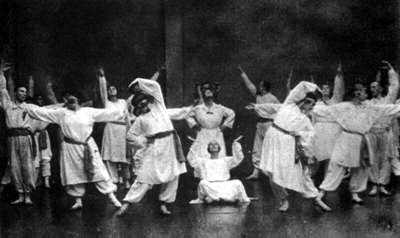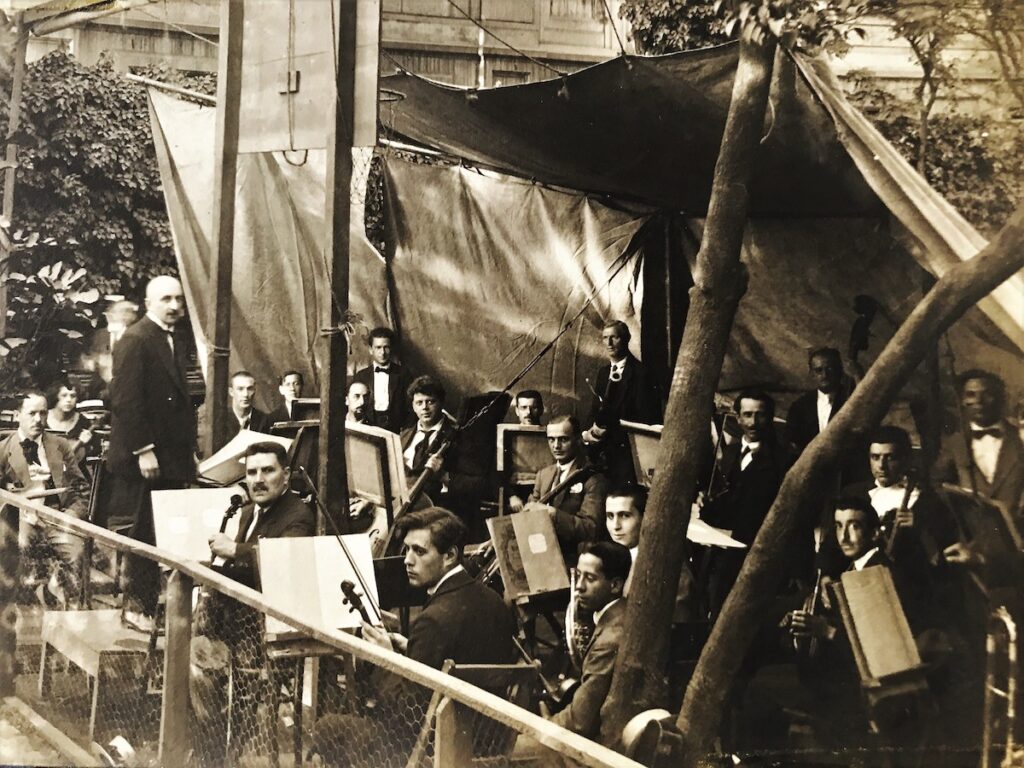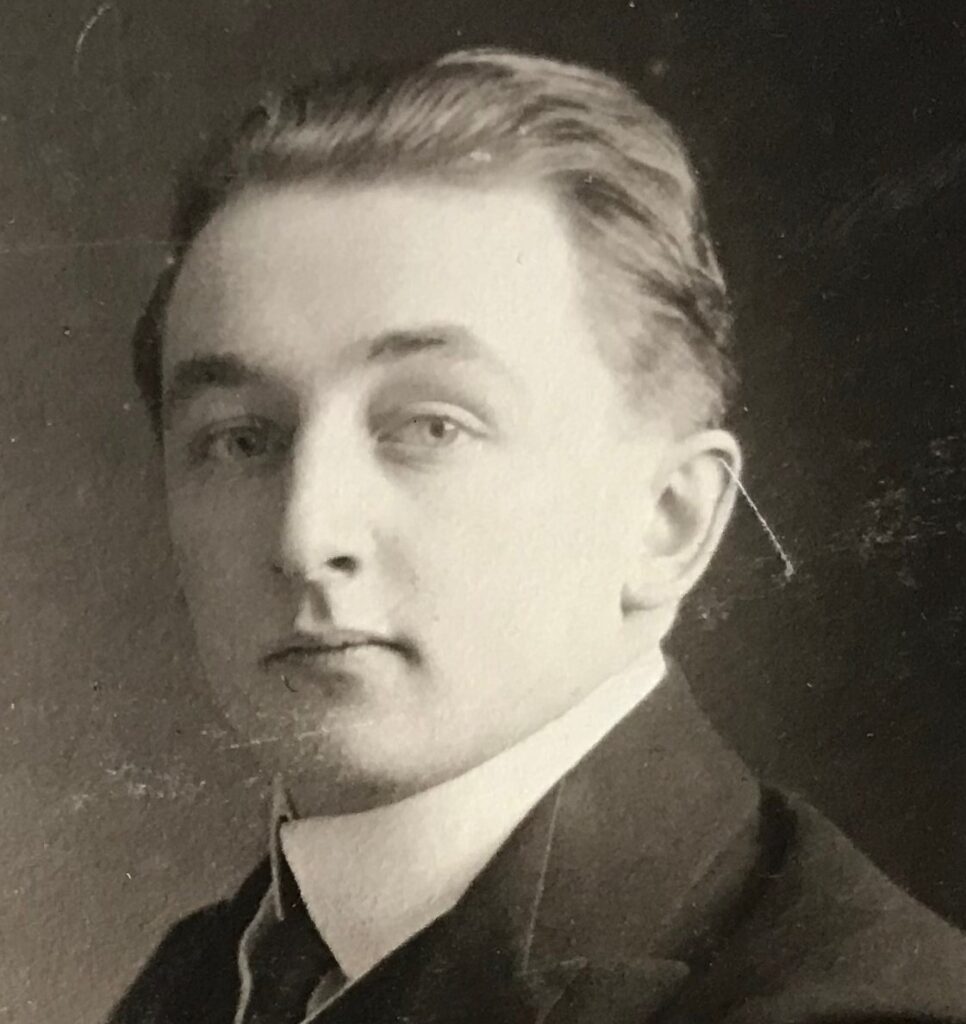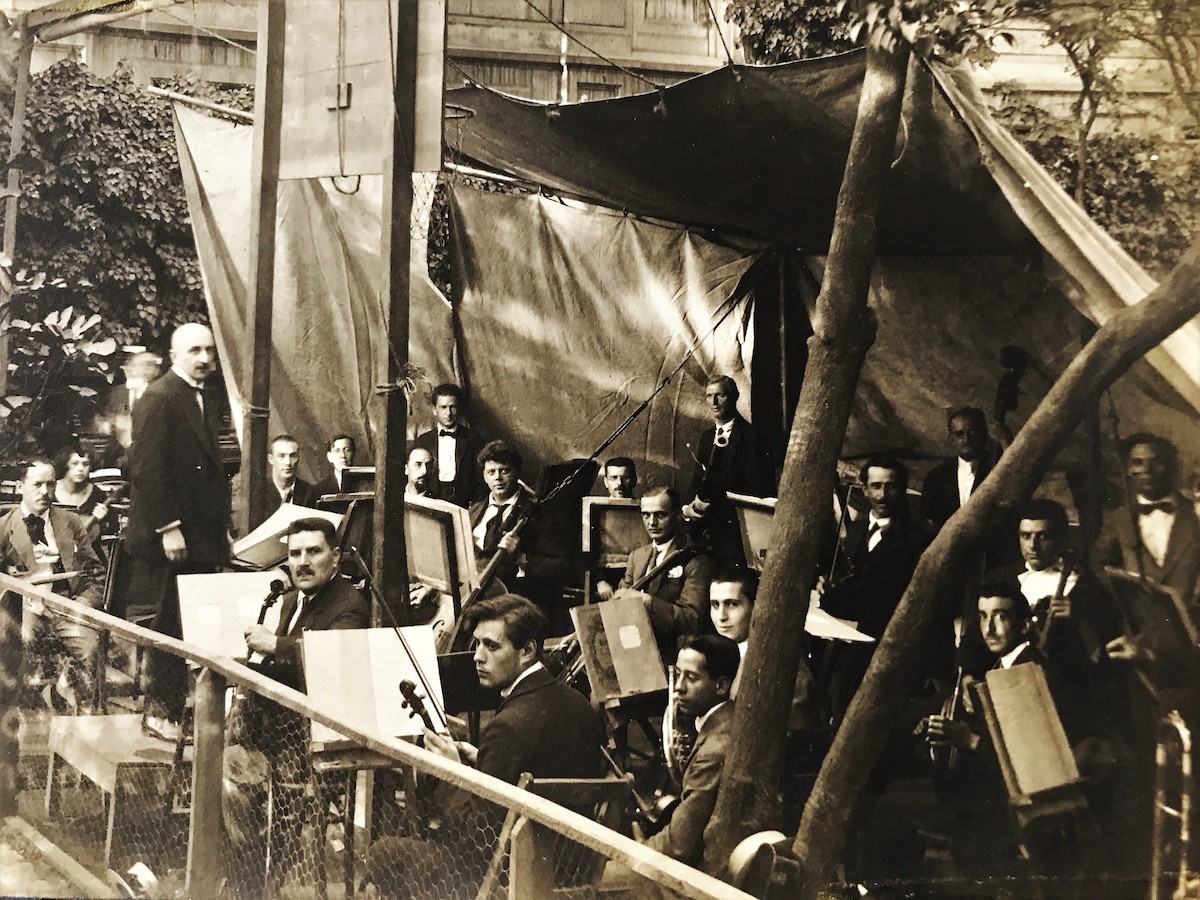
These Movements have a double aim
” By requiring a quality of attention maintained on several parts at the same time, they help us to get out of the narrow circle of our automatism. And through a strict succession of attitudes, they lead us to a new possibility of thinking, feeling and action. If we could truly perceive their meaning and speak their language, the Movements would reveal to us another level of understanding. “
Jeanne de Salzmann, Reality of being, p. 121-122
Music at the heart of our history
While he led the Institute at the Prieuré of Avon, Gurdjieff worked in close collaboration with the composer Thomas de Hartmann. It was de Hartmann who transcribed and harmonized several hundred musical works, including those composed for the Movements.

Song of the Fisherwomen
Thomas de Hartmann, piano
Composed by G.I. Gurdjieff and Thomas de Hartmann
Sayyid Chant and Dance No. 8
Thomas de Hartmann, piano
Composed by G.I. Gurdjieff and Thomas de Hartmann
When she died in 1979, Olga de Hartmann bequeathed to the Montreal Foundation the rights to what has become known as the Gurdjieff/de Hartmann music.
In the words of Thomas de Hartmann:
“Mr. Gurdjieff’s music had great variety. The most deeply moving was that which he remembered hearing in remote temples during his Asian travels. Listening to this music one was touched to the depth of his being…”
“How it was written is very interesting in itself. It usually happened in the evening, either in the big salon of the château or in the Study House. From my room I usually heard when Mr. Gurdjieff began to play and, taking my music paper, I had to rush downstairs. All the people came soon and the music dictation was always in front of everybody. “
Our Life with Mr. Gurdjieff, p. 245 and p. 247.


These Movements have a double aim
” By requiring a quality of attention maintained on several parts at the same time, they help us to get out of the narrow circle of our automatism. And through a strict succession of attitudes, they lead us to a new possibility of thinking, feeling and action. If we could truly perceive their meaning and speak their language, the Movements would reveal to us another level of understanding. “
Jeanne de Salzmann, Reality of being, p. 121-122
Music at the heart of our history
While he led the Institute at the Prieuré of Avon, Gurdjieff worked in close collaboration with the composer Thomas de Hartmann. It was de Hartmann who transcribed and harmonized several hundred musical works, including those composed for the Movements.

Song of the Fisherwomen
Thomas de Hartmann, piano
Composed by G.I. Gurdjieff and Thomas de Hartmann
Sayyid Chant and Dance No. 8
Thomas de Hartmann, piano
Composed by G.I. Gurdjieff and Thomas de Hartmann
When she died in 1979, Olga de Hartmann bequeathed to the Montreal Foundation the rights to what has become known as the Gurdjieff/de Hartmann music.
In the words of Thomas de Hartmann:
“Mr. Gurdjieff’s music had great variety. The most deeply moving was that which he remembered hearing in remote temples during his Asian travels. Listening to this music one was touched to the depth of his being…”
“How it was written is very interesting in itself. It usually happened in the evening, either in the big salon of the château or in the Study House. From my room I usually heard when Mr. Gurdjieff began to play and, taking my music paper, I had to rush downstairs. All the people came soon and the music dictation was always in front of everybody. “
Our Life with Mr. Gurdjieff, p. 245 and p. 247.


These Movements
have a double aim
” By requiring a quality of attention maintained on several parts at the same time, they help us to get out of the narrow circle of our automatism. And through a strict succession of attitudes, they lead us to a new possibility of thinking, feeling and action. If we could truly perceive their meaning and speak their language, the Movements would reveal to us another level of understanding. “
Jeanne de Salzmann, Reality of being, p. 121-122

Music at the heart
of our history
While he led the Institute at the Prieuré of Avon, Gurdjieff worked in close collaboration with the composer Thomas de Hartmann. It was de Hartmann who transcribed and harmonized several hundred musical works, including those composed for the Movements.
Song of the Fisherwomen
Thomas de Hartmann, piano
Composed by G.I. Gurdjieff and Thomas de Hartmann
Sayyid Chant and Dance No. 8
Thomas de Hartmann, piano
Composed by G.I. Gurdjieff and Thomas de Hartmann
When she died in 1979, Olga de Hartmann bequeathed to the Montreal Foundation the rights to what has become known as the Gurdjieff/de Hartmann music.

In the words of
Thomas de Hartmann:
“Mr. Gurdjieff’s music had great variety. The most deeply moving was that which he remembered hearing in remote temples during his Asian travels. Listening to this music one was touched to the depth of his being…”
“How it was written is very interesting in itself. It usually happened in the evening, either in the big salon of the château or in the Study House. From my room I usually heard when Mr. Gurdjieff began to play and, taking my music paper, I had to rush downstairs. All the people came soon and the music dictation was always in front of everybody. “
Our Life with Mr. Gurdjieff, p. 245 and p. 247.